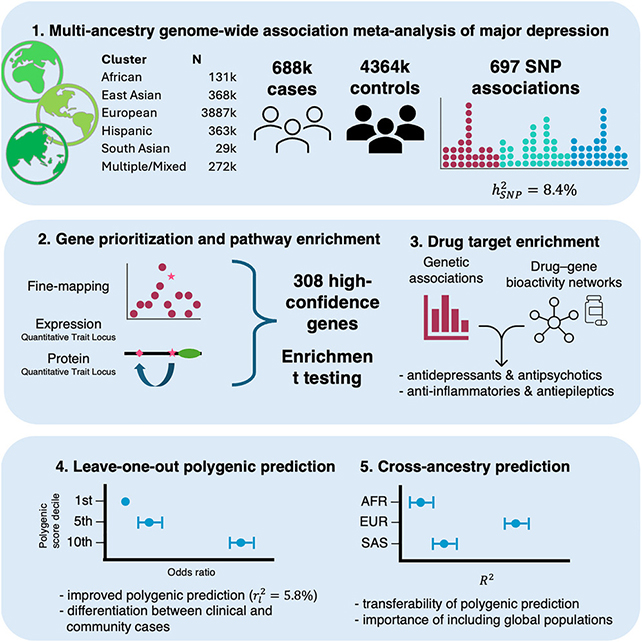Genes play a role in our likelihood of developing depression, and one of the most extensive studies of its kind has now been able to link 293 previously unknown genetic variations to the devastating condition.
The international team of researchers behind the study says it opens up opportunities for depression treatments that are more bespoke and personalized – because they can be based around each person's genetic make-up.
They identified new genetic risk factors in all major global populations, which means scientists can predict depression risk across ethnicities. It also gives experts a much deeper understanding of the impact of genes on the condition, which can then help in improving treatments.

The study used anonymized data from more than five million people. (Major Depressive Disorder Working Group of the Psychiatric Genomics Consortium, Cell, 2025)"There are huge gaps in our understanding of clinical depression that limit opportunities to improve outcomes for those affected," says biological psychiatrist Andrew McIntosh, from the University of Edinburgh in the UK.
"Larger and more globally representative studies are vital to provide the insights needed to develop new and better therapies, and prevent illness in those at higher risk of developing the condition."
The genetic cross-referencing was based on data from 688,808 people diagnosed with major depression and 4.3 million people without the condition, across 29 countries and a wide range of ethnicities – making this the largest study of depression and genetics to date.
A huge proportion of the discovered gene variants were found because nearly a quarter of the study participants were from diverse, non-European ancestries. That means in the future we should be able to predict depression more accurately, and treat it more effectively, across any population.
While each variant only increases depression risk by a small amount, having several in combination can be significant. These genetic influences add to other risk factors for depression, including how we sleep and what we eat.
"These findings show depression is highly polygenic and open up downstream pathways to translate these findings into better care for people with depression," says genetic epidemiologist Cathryn Lewis, from King's College London.
The researchers were also able to tie the genetic variants they identified with specific types of brain neurons, and in particular excitatory neurons in the hippocampus and amygdala brain regions.
That not only tells us more about the brain changes that can come along with or trigger depression, but also reveals more about how depression is linked to other problems in the brain, like anxiety or Alzheimer's disease.
Ultimately, depression is a combination of a multitude of factors – it's a condition with causes and consequences that vary for everyone – but this new research means we're much better informed about the genetic components of those differences.
"Our study identifies hundreds of additional genetic variants that play a role in depression," says Lewis. "Depression is a highly prevalent disorder and we still have a lot to learn about its biological underpinnings."
The research has been published in Cell.